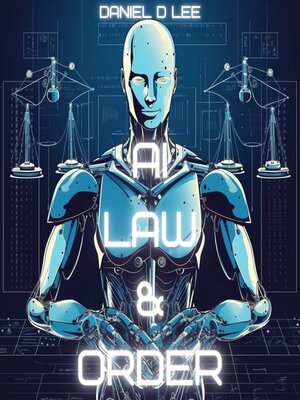AI Law & Order
audiobook (Unabridged) ∣ Examining Artificial Intelligence in Legal Systems and Policing
By Daniel D. Lee

Sign up to save your library
With an OverDrive account, you can save your favorite libraries for at-a-glance information about availability. Find out more about OverDrive accounts.
Find this title in Libby, the library reading app by OverDrive.



Search for a digital library with this title
Title found at these libraries:
| Library Name | Distance |
|---|---|
| Loading... |
This audiobook is narrated by a digital voice.
"AI Law & Order: Examining Artificial Intelligence in Legal Systems and Policing" is a groundbreaking exploration into the rapidly evolving intersection of artificial intelligence and the legal domain. The book delves into the transformative impact of AI technologies across various facets of law enforcement and judicial proceedings, presenting a nuanced dialogue on the benefits, challenges, and ethical considerations that accompany this technological upheaval.
The narrative begins by introducing AI into the courtroom, where automation and algorithms are beginning to redefine traditional legal processes. From robot-assisted litigation to AI-driven legal research, the book offers an in-depth look at how these tools not only speed up proceedings but also raise significant ethical questions about impartiality and the human element in justice. Each chapter meticulously examines case studies such as AI negotiators and autonomous attorneys, pushing the reader to consider how far technology should go in replacing human judgment.
Shifting focus to law enforcement, the text explores the use of AI in policing strategies—from predictive policing tools that forecast crime hotspots to real-time crime centers that use AI to analyze vast amounts of data instantly. The discussion extends to the deployment of AI in aerial monitoring and its implications for privacy and surveillance, providing a balanced analysis of the efficiency gains versus the potential for civil liberties infringements.
Throughout the book, the narrative remains meticulously researched and thoughtfully presented, making it an essential read for legal professionals, policymakers, and technologists alike. By the end, readers are equipped not only with a deep understanding of how AI is reshaping the legal and policing landscapes but also with the critical questions that must be addressed to harness these technologies responsibly and ethically.







